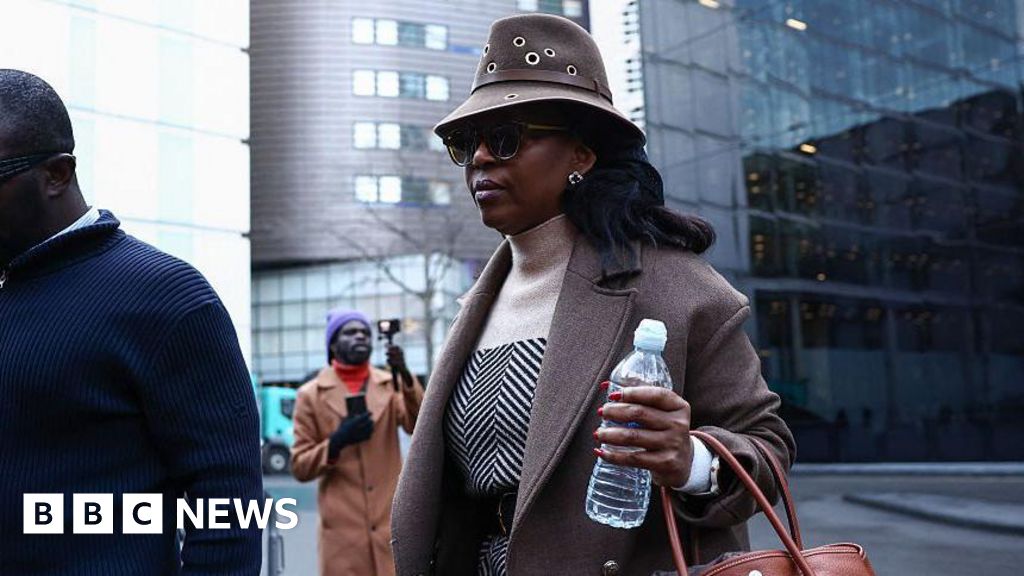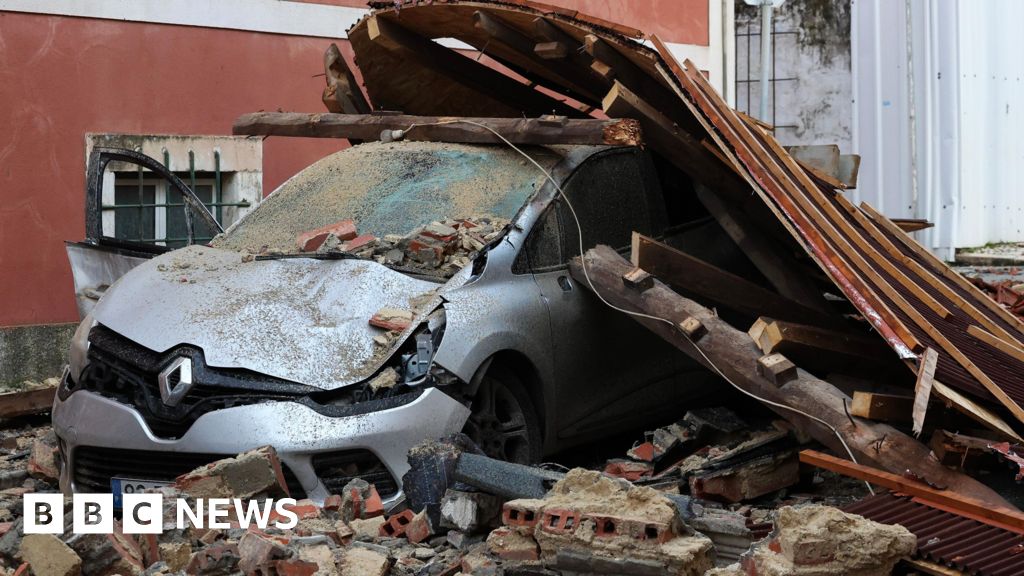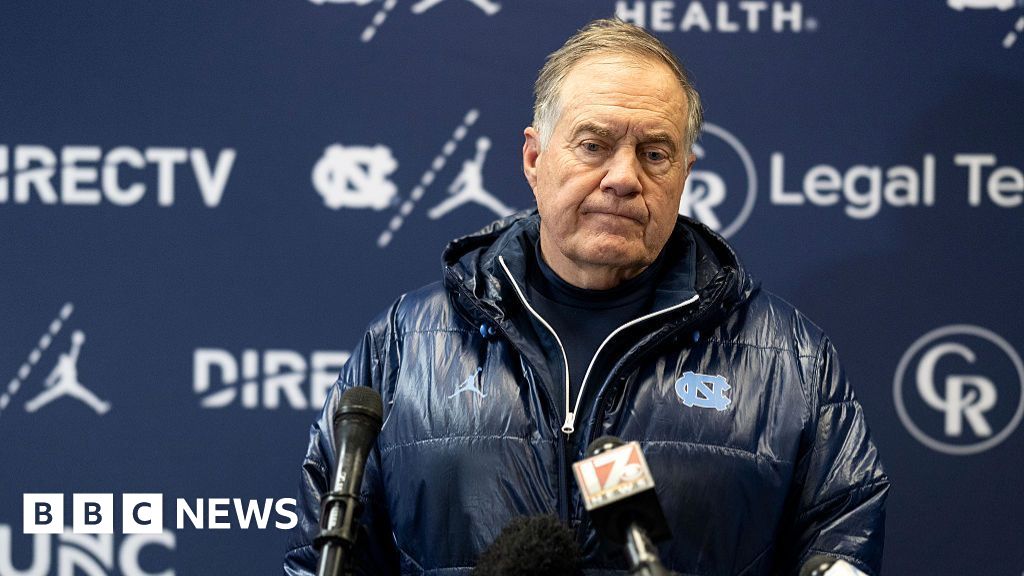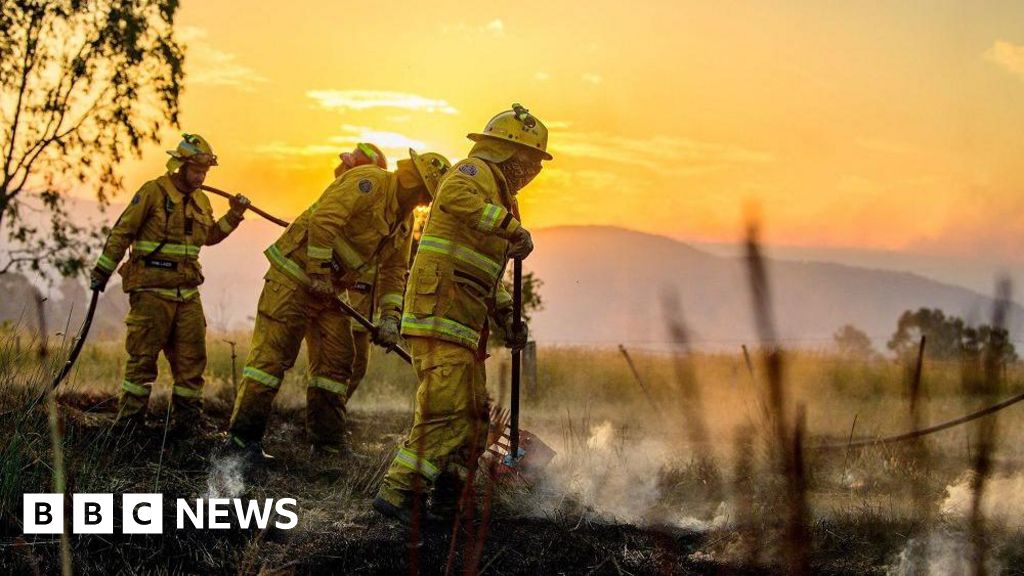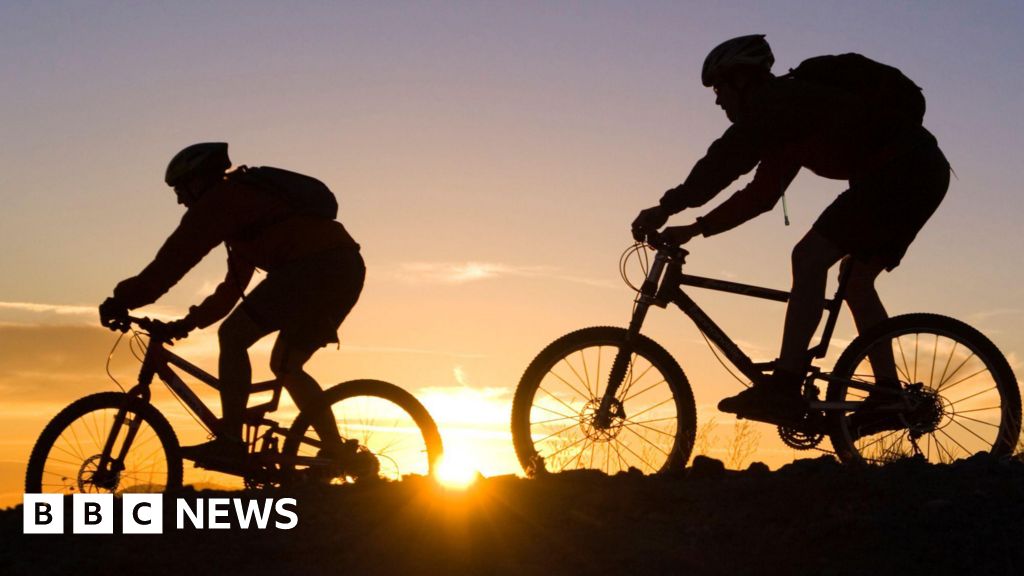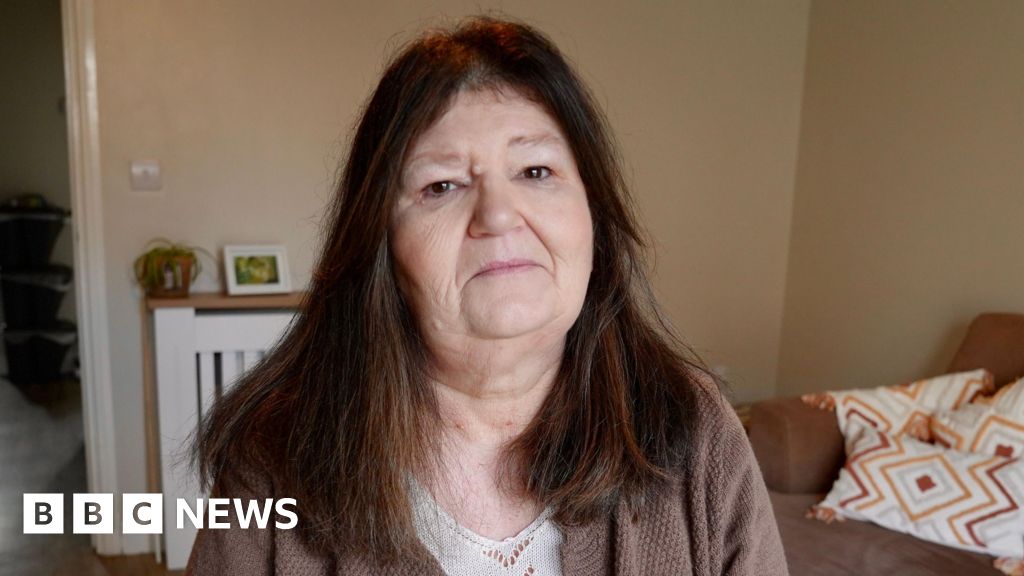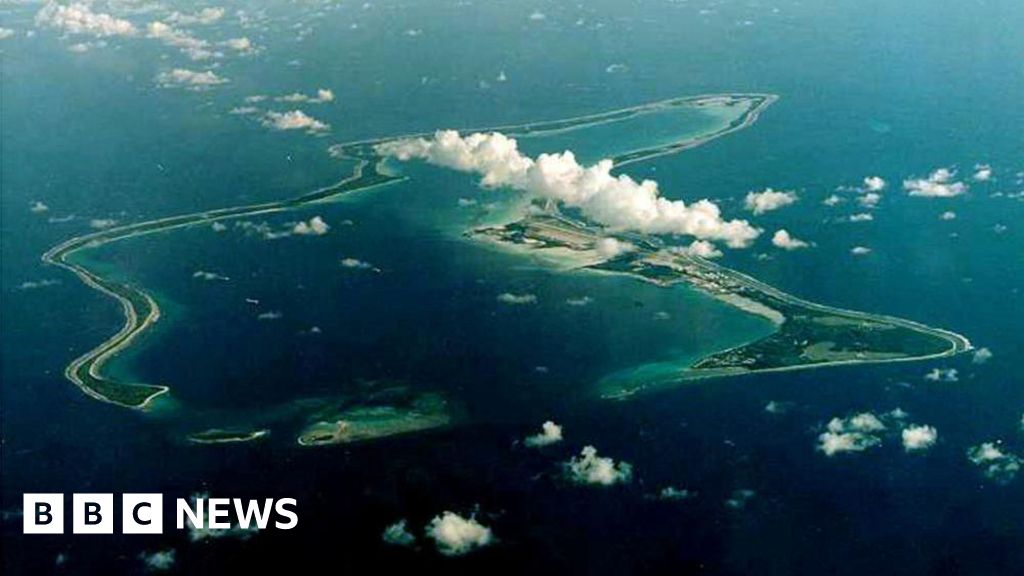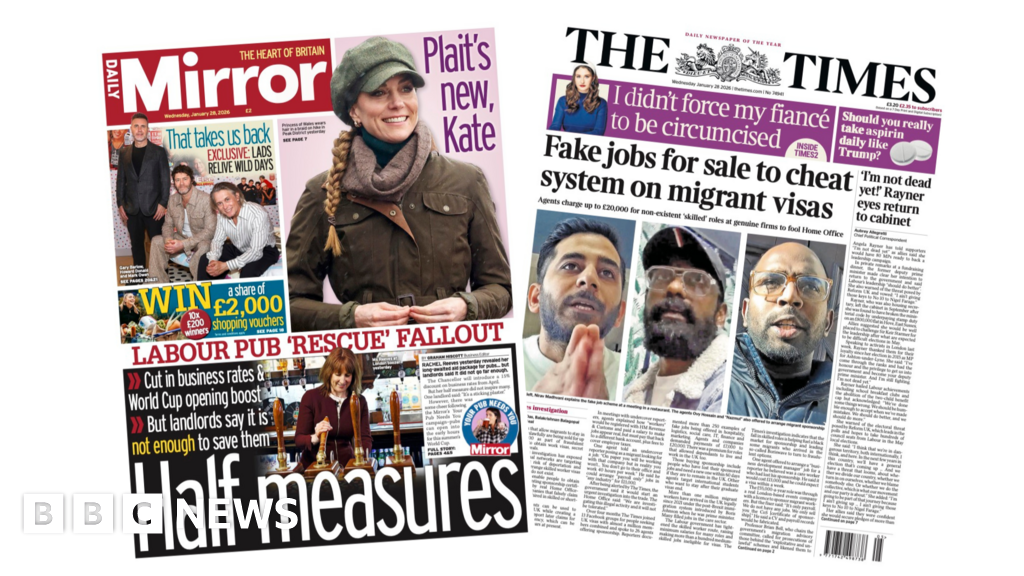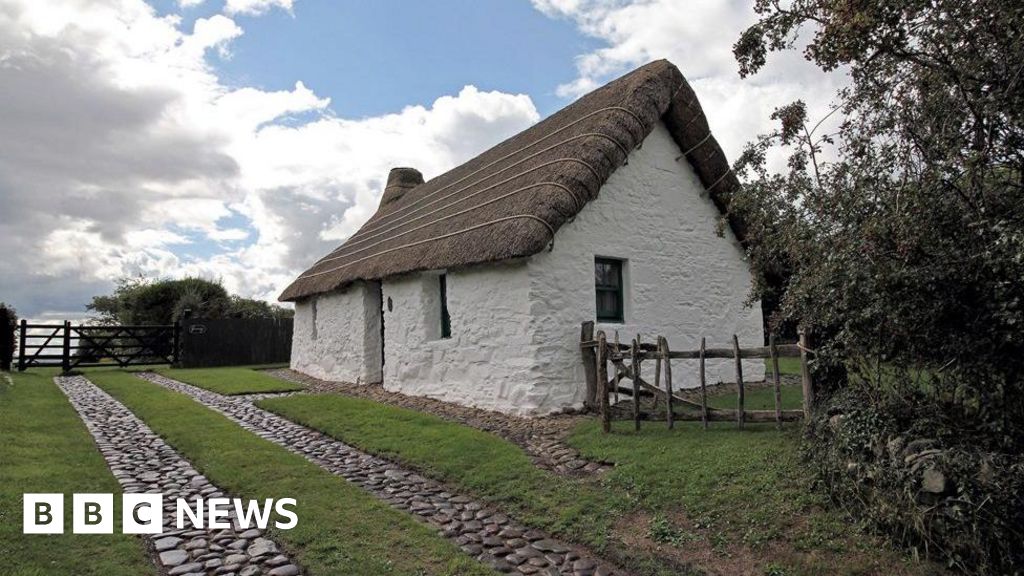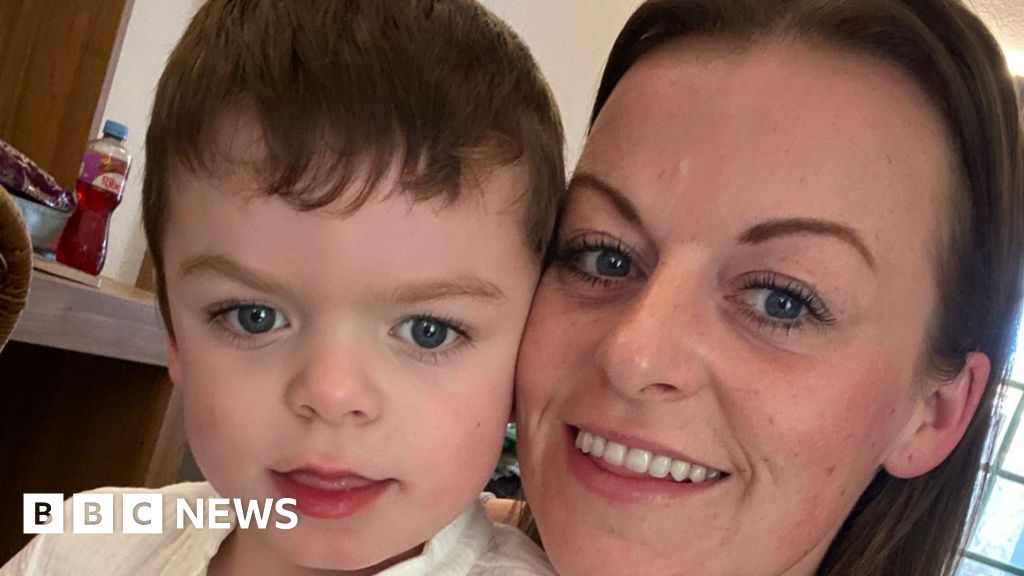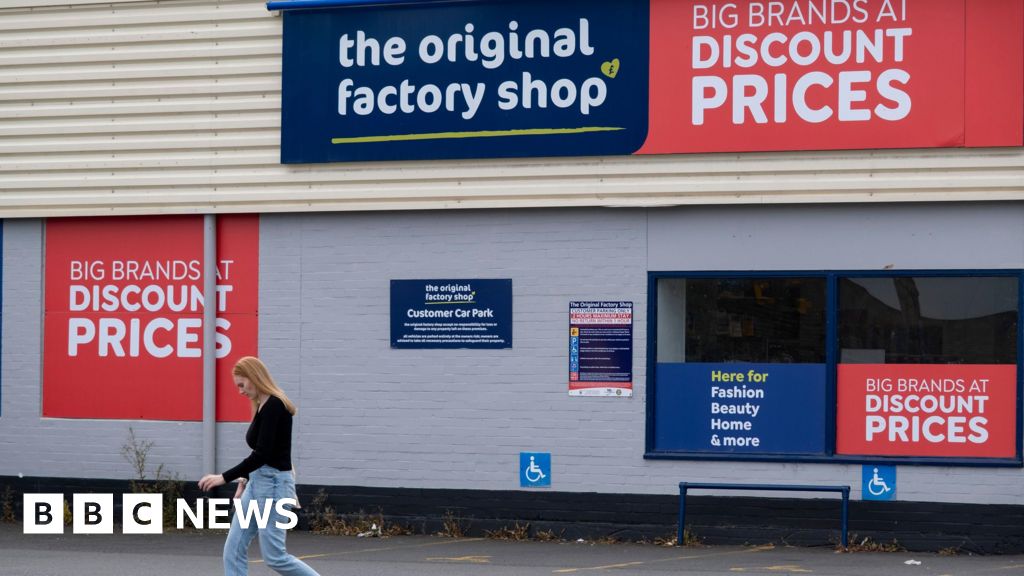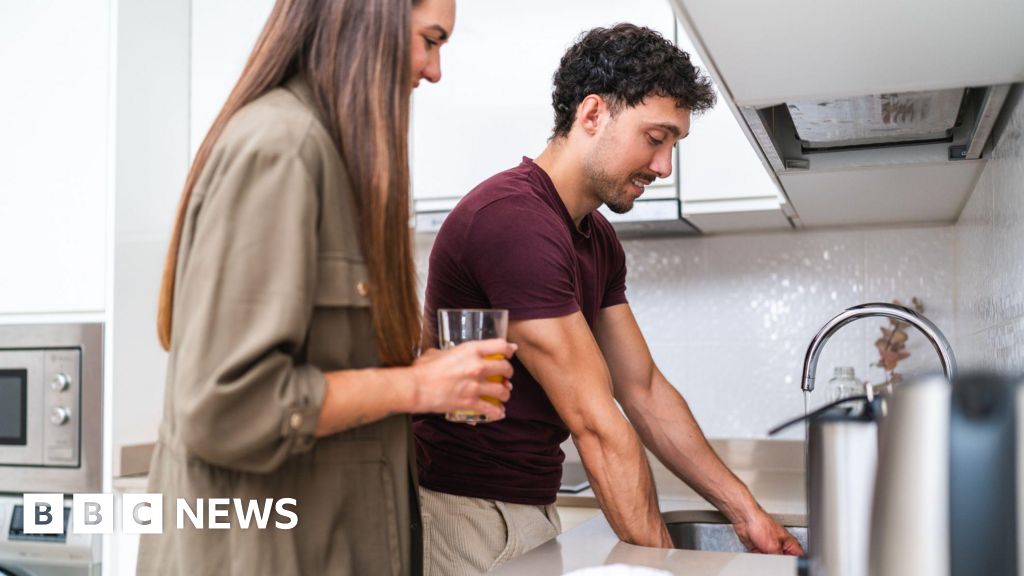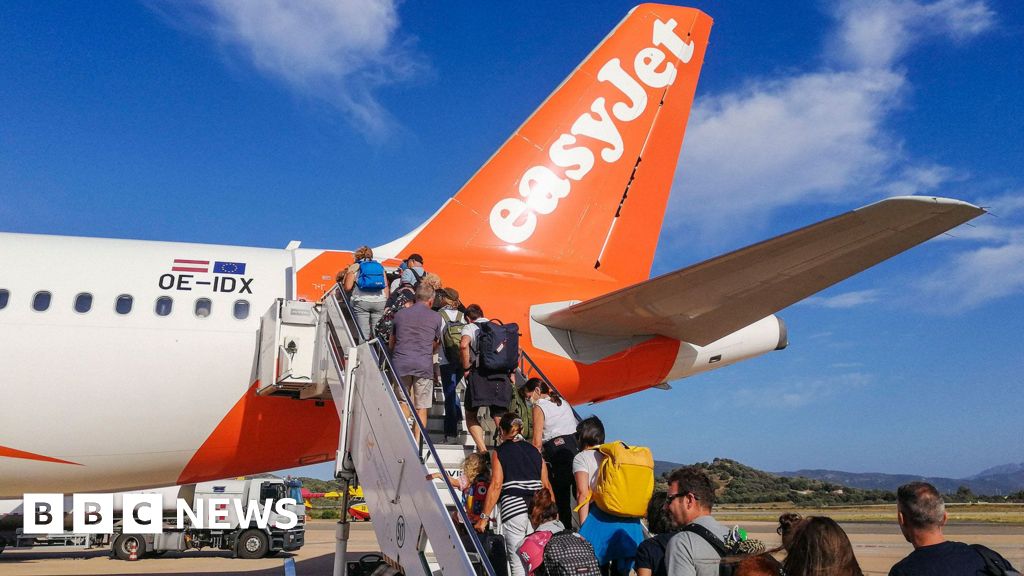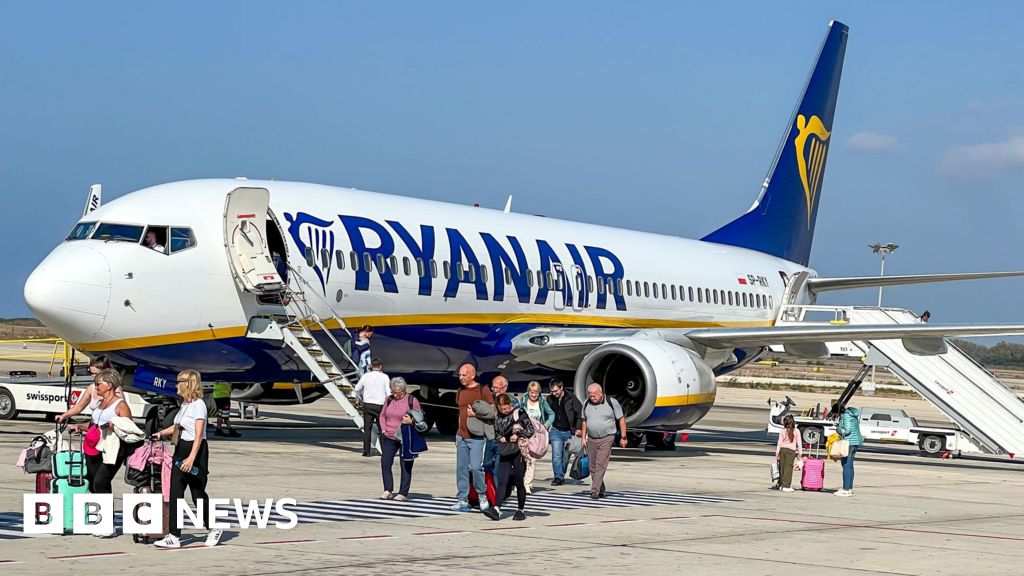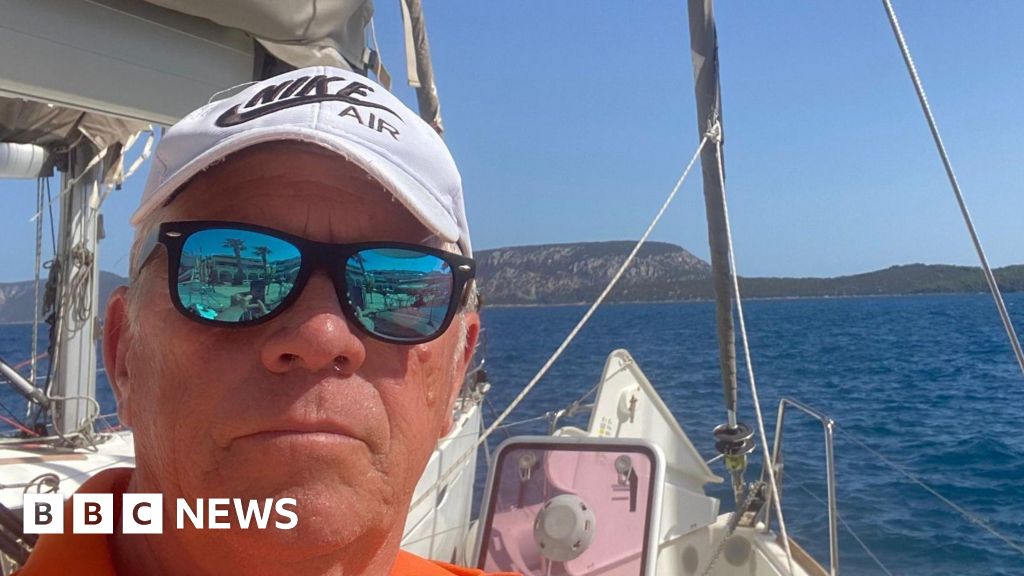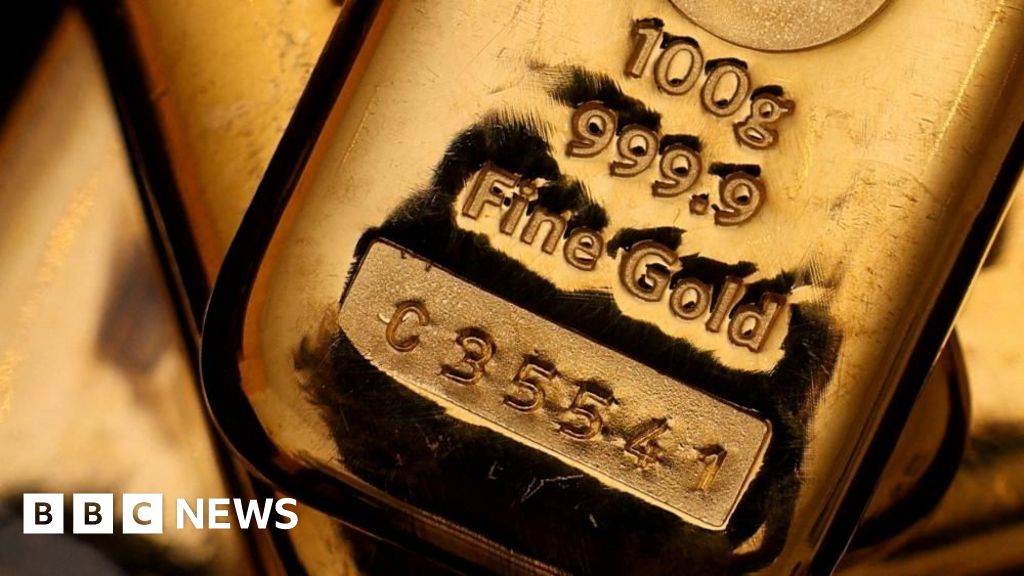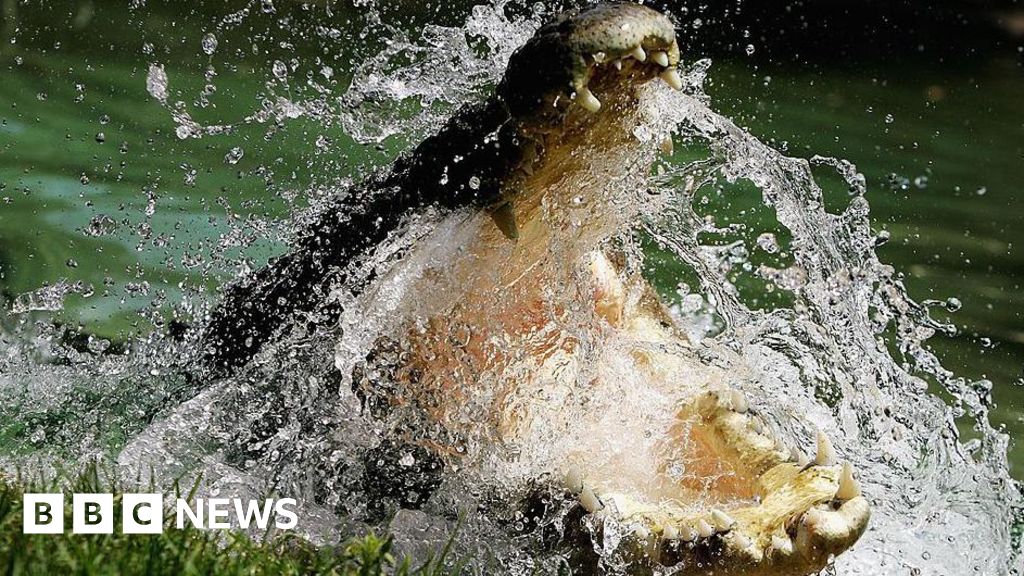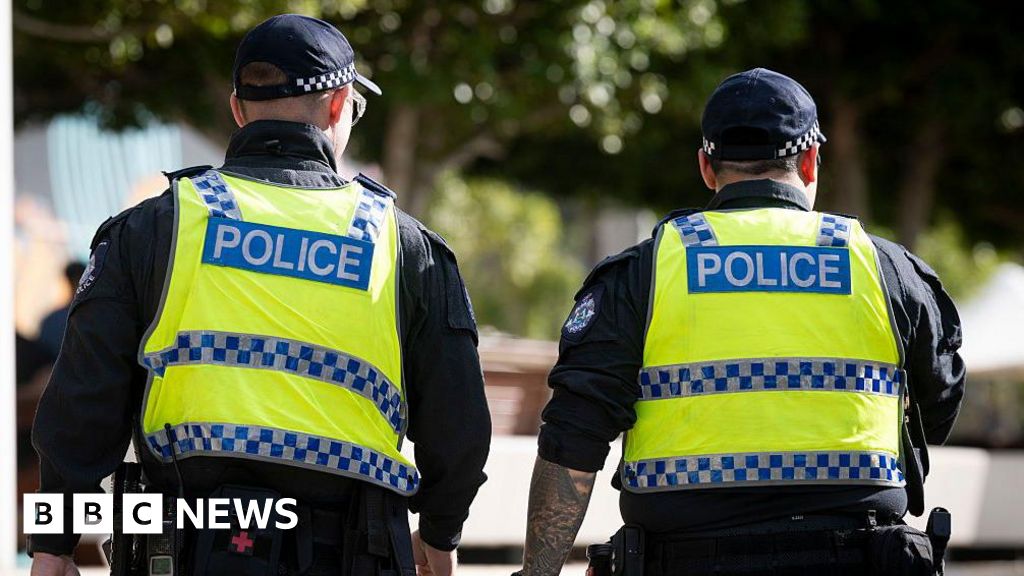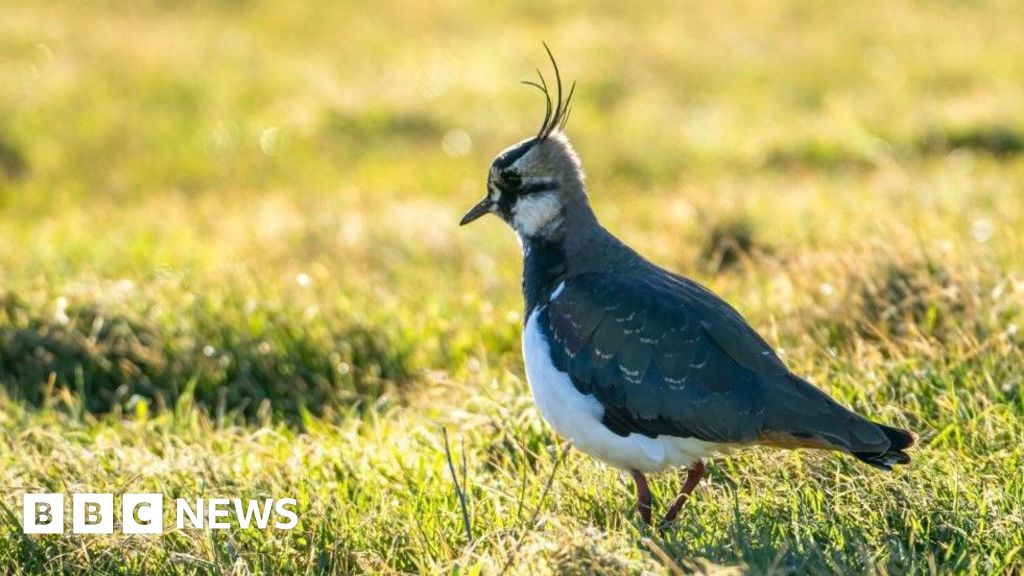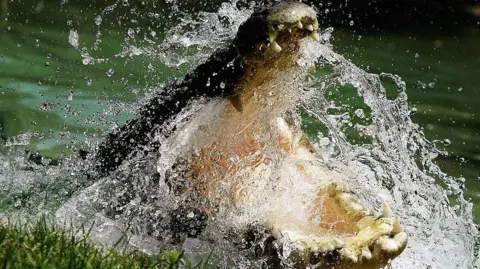 Getty Images
Getty ImagesIt’s dawn on Darwin Harbour and government ranger Kelly Ewin – whose job is to catch and remove crocodiles – is balancing precariously on a floating trap.
Heavy rain clouds from the storm that has recently passed are overhead. The engine of the boat has been cut so now it’s mostly silent – that is, apart from the intermittent splashing coming from inside the trap.
“You get pretty much zero chances with these guys,” says Ewin as he attempts to loop a noose around the jaw of the agitated reptile.
We’re in Australia’s Northern Territory (NT), home to an estimated 100,000 wild saltwater crocodiles, more than anywhere in the world.
The capital, Darwin, is a small coastal city surrounded by beaches and wetlands.
And, as you quickly learn here in the NT, where there is water, there usually are crocs.
Saltwater crocs – or salties, as they are known to locals – were nearly hunted to extinction 50 years ago.
After World War Two, the uncontrolled trade in their skins soared and numbers fell to around 3,000.
But when hunting was banned in 1971, the population started rising again – and fast.
They still are a protected species, but are no longer threatened.
The recovery of the saltwater crocodile has been so dramatic that Australia now faces a different dilemma: managing their numbers to keep people safe and the public onside.
“The worst thing that can happen is when people turn [against crocodiles],” explains croc expert Prof Grahame Webb.
“And then a politician will invariably come along with some knee-jerk reaction [that] they’re going to ‘solve’ the crocodile problem.”
Living with predators
The NT’s hot temperatures and abundant coastal surroundings create the perfect habitat for cold-blooded crocs, who need warmth to keep their body temperature constant.
There also are big saltie populations in Northern Queensland and Western Australia as well as in parts of South East Asia.
While most species of crocodile are harmless, the saltie is territorial and aggressive.
Fatal incidents are rare in Australia, but they do happen.
Last year, a 12-year-old was taken – the first death from a crocodile in the NT since 2018.
This is busiest time of year for Ewin and his colleagues.
Breeding season has just started, which means salties are on the move.
His team are on the water several times a week, checking the 24 crocodile traps surrounding the city of Darwin.
The area is popular for fishing, as well as for some brave swimmers.
The crocodiles that are removed from the harbour are most often killed, because if they are released elsewhere, they’re likely to return to the harbour.
“It’s our job to try and keep people as safe as we can,” says Ewin, who’s been doing his “dream job” for two years. Before that, he was a policeman.
“Obviously, we’re not going to capture every crocodile, but the more we take out of the harbour, the less risk there’s going to be an encounter with crocodiles and people.”
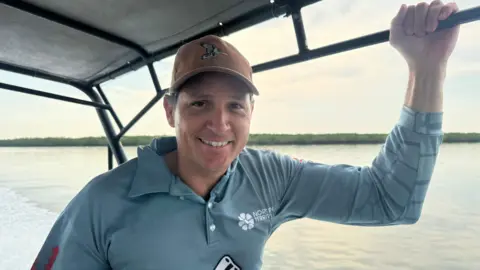
Another tool helping to keep the public safe is education.
The NT government goes into schools with its programme “Be Crocwise” – which teaches people how to behave responsibly around croc habitats.
It’s been such a success that Florida and the Philippines are now looking to borrow it, in order to better understand how the world’s most dangerous predators can live alongside humans with minimal interactions.
“We’re living in crocodile country, so it’s about how we [keep ourselves] safe around the waterways – how should we be responding?” says Natasha Hoffman, a ranger who runs the programme in the NT.
“If you’re on the boats when you’re fishing, you need to be aware that they’re there. They’re ambush hunters, they sit, watch and wait. If the opportunity is there for them to grab some food, that’s what they’re going to do.”
In the NT, mass culling is currently not on the table given the protected status of the species.
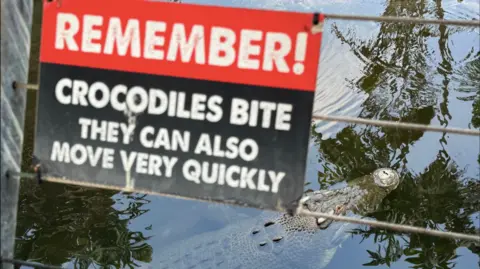
Last year though, the government approved a new 10-year crocodile management plan to help control the numbers, which increased the quota of crocs that can be killed annually from 300 to 1,200.
This is on top of the work Ewin’s team is doing to remove any crocodiles that pose a direct threat to humans.
Every time there’s a death, it reignites the debate about crocodiles living in close proximity to people.
In the days after the 12-year-old girl was taken last year, the Territory’s then leader Eva Lawler made it clear she wouldn’t allow the reptiles to outnumber the human population of the NT.
Currently that stands at 250,000, well above the number of wild crocs.
It’s a conversation that goes beyond the NT.
Queensland is home to about a quarter of the number of crocs that the Top End of NT has, but there are far more tourists, and more deaths, which means talk of culls sometimes feature in election debates.
Big business
The apex predators may court controversy, but they’re also a big draw card for the NT – for tourists but also for fashion brands keen to buy their leather.
Visitors can head to the Adelaide River to watch “croc jumping” – which involves salties being fed bits of meat on the end of a stick if they can leap out of the water for their audience.
“I’m supposed to tell you to put your [life-jackets] on,” jokes the head skipper at Spectacular Jumping Croc Cruises, Alex ‘Wookie’ Williams, as he explains the house rules of the boat.
“The bit I don’t have to tell you… [is that] life jackets are pretty useless out here.”
For Williams, who’s been obsessed with crocs since childhood, there’s plenty of opportunity to work alongside them.
“It’s boomed over the last 10 years or so,” he says of the number of tourists coming to the region.
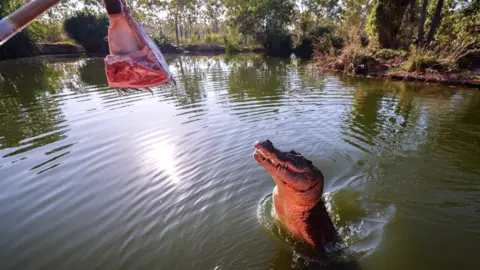 Getty Images
Getty ImagesFarming, which was brought in when hunting was banned, has also become an economic driver.
It’s estimated there are now about 150,000 crocodiles in captivity in the NT.
Fashion labels such as Louis Vuitton and Hermès – which sells a Birkin 35 croc handbag for as much as A$800,000 ($500,000; £398,000) – have all invested in the industry.
“The commercial incentives were effectively put in place to help people tolerate crocodiles, because we need a social licence to be able to use wildlife,” says Mick Burns, one of the NT’s most prominent farmers who works with luxury brands.
His office is in downtown Darwin. Spread across the floor is a massive croc skin. Pinned to the wall of the conference room, there is another skin that spans at least four metres.
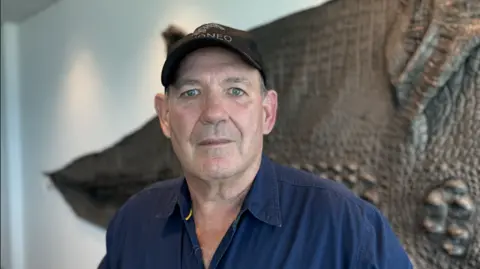
Burns is also involved with a ranch in remote Arnhem Land, about 500km (310 miles) east of Darwin. There, he works with Aboriginal rangers to harvest and hatch croc eggs to sell their skins to the luxury goods industry.
One of the area’s Traditional Owners, Otto Bulmaniya Campion, who works alongside Burns, says more partnerships like theirs are crucial for ensuring Aboriginal and Torres Strait Islander communities share in the financial benefits of the industry.
For tens of thousands of years, crocs have played a significant role in Indigenous cultures, shaping their sacred stories, lives and livelihoods.
“My father, all the elders, used to go and harpoon crocodiles, get a skin, and go and trade it for tea, flour, and sugar. [However] there was no money at that time,” the Balngarra man says.
“Now, we want to see our own people handling reptiles.”
But not everyone is on board with farming as a practice – even if those involved say it helps with conservation.
The concern among animal activists lies in the way the crocs are held in captivity.
Despite being social animals, they are usually confined to individual pens to ensure their skins are flawless – as a scrap between two territorial crocs would almost certainly damage a valuable commodity.
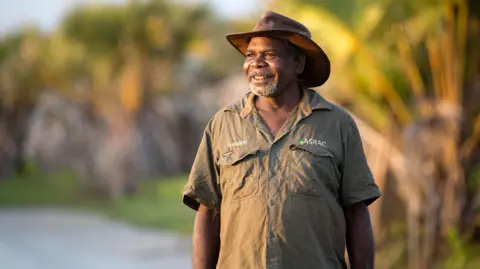 Aboriginal Swamp Rangers Aboriginal Corporation
Aboriginal Swamp Rangers Aboriginal CorporationEveryone in Darwin has a story about these formidable creatures, regardless of whether they want to see them hunted in greater numbers or more rigorously preserved.
But the threat they continue to pose is not imagined.
“If you go [swimming in] the Adelaide river next to Darwin, there’s a 100% chance you’ll be killed,” says Prof Webb matter-of-factly.
“The only question is whether it’s going to take five minutes or 10 minutes. I don’t think you’ll ever get to 15 – you’ll be torn apart,” he adds, pushing up his trouser leg to reveal a huge scar on his calf – evidence of a close encounter with one angry female nearly forty years ago as he was collecting eggs.
He is unapologetic about what he calls the pragmatism of authorities to manage numbers and make money out of crocs along the way – a way of life that, in the near future at least, is here to stay.
“We’ve done what very few people can do, which is take a very serious predator…and then manage them in such a way that the public is prepared to [tolerate] them.
“You try and get people in Sydney or London or New York to put up with a serious predator – they aren’t going to do it.”



